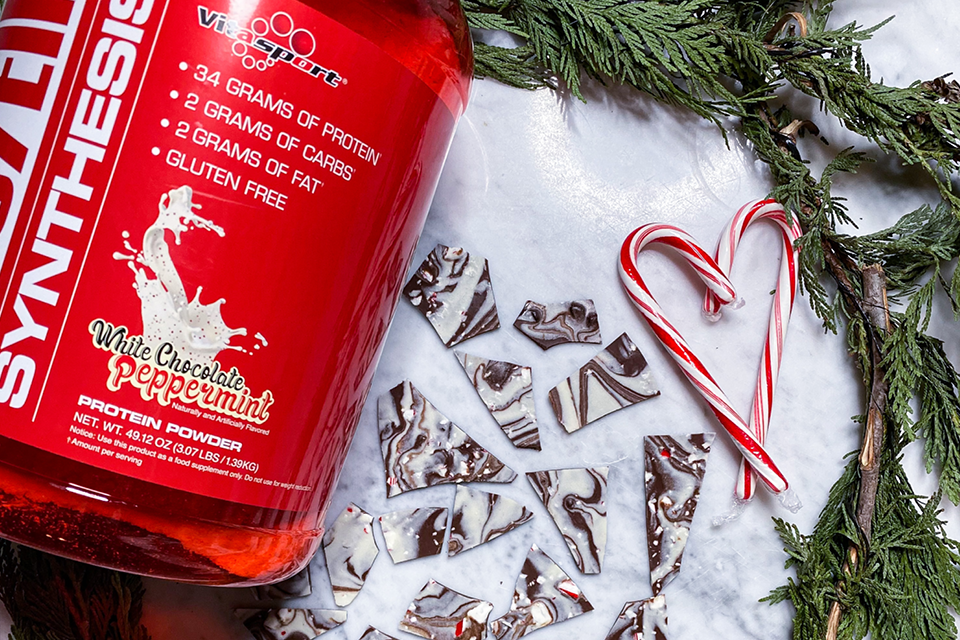Where did the poultry and eggs go? Lately, amidst the COVID-19 pandemic, the grocery stores are running short on these essential lean muscle-building protein sources.
Many times dairy sources like Greek yogurt, cottage cheese, and even post-workout chocolate milk are on the ideal protein list, too, but they are nowhere to be found.
What are the next options? Lean beef and fish can undoubtedly help meet protein needs, but most medical recommendations suggest having each only twice a week for a healthy diet.
Transitioning to a vegetarian diet, focusing on blending whole grains with beans and legumes is an option, too, but rice has been scarce, too.
With limited protein sources in the stores, many are turning to protein supplements to fill the gap. Not only can they help fill the void right now, but also protein powders provide quick on-the-go nutrition for busy lifestyles. Let’s dive into how much protein you need, and what the different protein supplement options are.
How much protein do you need?
The average sedentary adult needs 0.8 grams of protein/kg of body weight per day to help maintain muscle and metabolism.
Those with physique and weight loss goals tend to be especially interested in protein because of its thermic effect; this means that the body burns calories trying to digest it, which raises your metabolism. Including protein with each snack and meal also helps people feel satisfied instead of grabbing for the next sugary treat.
According to the American College of Sports Medicine and National Strength and Conditioning Associations, athletes that resistance train regularly may need up to 2.0 grams of protein/kb of body weight.
How much protein can the body digest at one time?
The average adult can utilize up to 30 grams of protein within a meal, assuming your meals are at least 2 hours apart from each other.
What are the common powdered or ready-to-drink protein choices?
Commonly, you will find five major protein powder categories available in most supplement stores and isles: whey, casein, egg, collagen, and vegan. Not all protein is created the same. Here’s a quick overview:
– Whey protein
Whey is a milk derivative. The body digests it reasonably quickly, making it ideal for breakfast, pre-workout, and post-workout. Like meat-based sources, whey is typically a complete protein, so it does not need to be paired with rice or legumes to get all of your crucial amino acids to support your muscle and metabolism. If you are lactose sensitive, chances are you can digest whey isolate, but not whey concentrate, so reading the label to see whether it is isolate or concentrate is essential. If you are allergic to cow’s milk, whey is probably not a safe choice.
– Casein
Casein is also a milk derivative. It is more similar to the dairy found in cottage cheese. Like whey, it is a complete protein. Casein is digested more slowly than whey, however, making it ideal for a nighttime snack. With lactose intolerance or dairy allergies, casein should likely be avoided.
– Egg protein
Egg protein is also easy for the body to break down and use for muscle and metabolism. Usually, it is made of egg whites. Many forms need refrigeration or freezing. Egg protein supplements have typically been pasteurized in a way that is different than the egg whites used for cooking and baking. Like whey and casein, egg is a complete protein source. Also, like whey and casein, egg tends to be a more prevalent food allergy and sensitivity, so if you are allergic or sensitive to eggs, other choices would be better.
– Collagen
Collagen protein powder has been on the recent rise, primarily due to interest in skin and hair health as a wanted side effect. However, some people have unwanted GI side effects with collagen, so trying a sample first may be a good idea. Collagen powders are typically derived from beef or fish, which is a consideration for those maintaining a vegetarian or vegan diet. Many collagen protein powders also have MCT, medium-chain triglycerides, which is a coconut derivative. While coconut has many health benefits, those with nut or coconut allergies need to read the label carefully.
– Vegan
Vegan proteins come in many varieties, ranging from soy, rice, and rice-pea blend, to flax and mixed plant proteins. Single-ingredient vegan proteins, likely have only some of the essential amino acids. When muscle building and elevating metabolism, are more of an interest, the mixed proteins, such as a rice-pea blend, tend to be more helpful. Vegan proteins also tend to be higher in carbohydrates, which may factor into your nutrition planning if you count macros. Since many of these powders are mixed from multiple sources, being attentive to any allergens both in the active and inactive ingredient list can be an important consideration.
Once you have protein powder, what do you do with it?
First, read the label to understand the serving size and number of grams of protein per serving. Every protein has it’s own unique serving size. While tossing the powder and a cup of water in a shaker bottle is very convenient, feel free to have fun too! Protein powders can be mixed with fruit, veggies, and healthy fats to create a delicious meal replacement. Many can also be used in baking and other recipes. It’s not uncommon to find people whipping them up into puddings and brownies to squash the sweet tooth.
Finally, when considering protein powders, they are supplements. Most people still need to obtain at least part of their daily protein from whole food sources.
Closing Thoughts
We hope that this quick guide on navigating protein choices has helped you stay aligned with your metabolism and muscle building goals.
We love hearing from you. What are your favorite protein sources and healthy recipes? What questions do you have on supplements? We’d love to hear from you! Tag or message us #NutrishopUSA on Instagram and Facebook.
-------------------------------------
About the Author: Dr. Meredith Butulis is a Sports Medicine Physical Therapist, NSCA Certified Strength and Conditioning Coach, ACSM Certified Exercise Physiologist, NASM Certified Personal Trainer, and Precision Nutrition Certified Nutrition Coach in practice since 2002. She consistently walks the talk as a fitness, physique, and OCR world level competitor and lifestyle transformer since 2006, celebrating many wins along the way.




